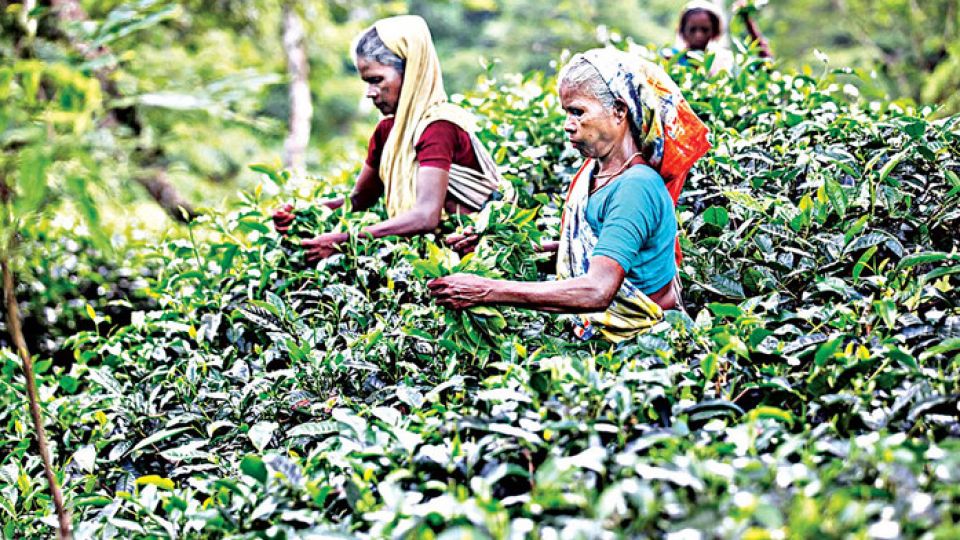October 31, 2025
DHAKA – Under the blazing sun in Moulvibazar’s Madhabkunda Tea Estate, 43-year-old Apola Kumari picks around 23 kilograms of tea leaves daily for Tk 178.
Her wages barely feed her family, while she faces another silent struggle — one that many are reluctant to mention.
“I can’t even afford food for my family. How will I buy sanitary napkins? I use old, torn sarees during my period. My two daughters do the same,” she said.
Both her daughters were married off right after their SSC exams to tea garden workers like their mother. They too are now struggling on the same meagre wages.
Apola added, “During menstruation, I feel itchy and unwell. There’s no place to wash properly, no money for medicine. I just keep working and suffering.”
Geeta, another tea worker, said menstruation makes her gruelling days even worse. “There’s only one washroom near our workplace, used by both men and women. When I get my period, the pain in my back and legs feels like my bones are breaking. But if I stop even for a while, I lose the whole day’s pay.”
A few months ago, she missed two days due to severe menstrual pain. “When I returned, my supervisor was furious. I wasn’t paid for the entire week.”
Apola and Geeta’s stories reflect the daily suffering of women in Bangladesh’s tea gardens. With low wages, few toilets, and little awareness, menstrual health remains one of the most neglected issues in the industry. There is no current official data on how many women work in it.
Poor nutrition, unsafe childbirth, and unhygienic living conditions make them vulnerable to reproductive and menstrual complications.
Sayed Shahriar, manager of Nurjahan Tea Estate in Srimangal, disagreed.
“We provide 20 days of medical leave and maternity leave for women. If a female worker reports menstrual discomfort, we try to help,” he claimed, adding that all tea estates “follow this practice”.
However, studies paint a grim picture.
A 2017 study titled “Socio-Economic Status, Dietary Pattern and Nutritional Status of Female Workers of Fulchhara Tea Garden” found 64.6 percent of the women workers underweight; 68.8 percent suffering from at least one illness; 44.8 without sanitary latrines; and 65 not washing hands with soap.
It added that women tea workers’ health remains far below the national standard.
A 2022 Unicef report said 500 million people worldwide lack menstrual hygiene facilities, while Bangladesh’s 2018 National Hygiene Survey found only 29 percent of menstruating women use sanitary pads.
Dr Monzur-A-Moula, junior consultant at the Maternal and Child Health Hospital, said, “Most women tea workers still rely on old cloths instead of sanitary napkins. These practices are unhygienic and risky. Using unclean or damp cloths causes frequent infections, reproductive complications, and even infertility.
“Social stigma worsens the problem. Menstruation is rarely discussed in tea communities. Women feel ashamed to seek help and are forced to work through pain without clean toilets or rest.”
To change this, he said, “Awareness and education are key. NGOs, local health departments, and estate authorities must ensure clean toilets, affordable sanitary pads, and information to help women menstruate safely.”
Dr Arefin Islam, country director of Noora Health, echoed the concern. “Even privileged women often can’t afford sanitary napkins. For tea workers, they’re a luxury. Old pieces of cloths are unhygienic, but what alternatives do they have? Many can’t even use a toilet when needed.”
He called for sustained awareness and government support. “If the government could provide free or reusable sanitary products, it would ease their suffering and restore dignity.”
In May 2021, the government introduced the National Menstrual Hygiene Management Strategy to ensure every girl and woman can “menstruate safely and with dignity”, which promotes inclusivity, sustainability, and collaboration among government, NGOs, and local communities. However, implementation remains limited.
Kazi Golam Tawsif, additional secretary of the women and children affairs ministry, admitted the challenges. “Tea workers live in restricted areas, making it difficult to reach them. But a new initiative — the ‘Mother and Children Benefit Program’ — will try to include them.”
However, until such programmes reach the tea gardens and menstrual health is treated as a basic right, women like Apola will keep suffering in silence.
Standing under the burning sun, sack heavy on her back, she told this correspondent before going back to picking leaves, “We are dying. We live like animals. When you go to Dhaka, please tell your government to do something for us.”


